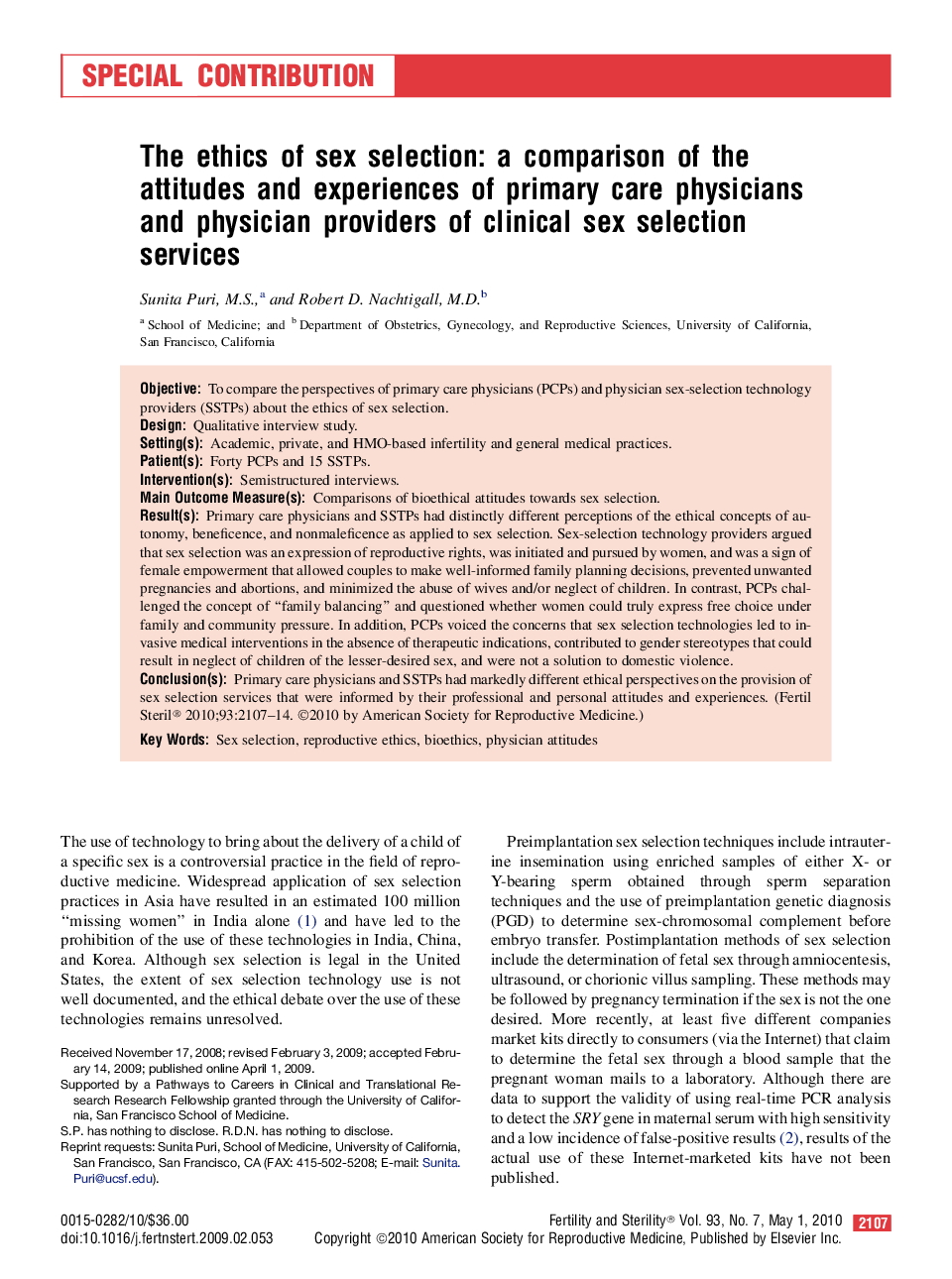| Article ID | Journal | Published Year | Pages | File Type |
|---|---|---|---|---|
| 3936318 | Fertility and Sterility | 2010 | 8 Pages |
ObjectiveTo compare the perspectives of primary care physicians (PCPs) and physician sex-selection technology providers (SSTPs) about the ethics of sex selection.DesignQualitative interview study.Setting(s)Academic, private, and HMO-based infertility and general medical practices.Patient(s)Forty PCPs and 15 SSTPs.Intervention(s)Semistructured interviews.Main Outcome Measure(s)Comparisons of bioethical attitudes towards sex selection.Result(s)Primary care physicians and SSTPs had distinctly different perceptions of the ethical concepts of autonomy, beneficence, and nonmaleficence as applied to sex selection. Sex-selection technology providers argued that sex selection was an expression of reproductive rights, was initiated and pursued by women, and was a sign of female empowerment that allowed couples to make well-informed family planning decisions, prevented unwanted pregnancies and abortions, and minimized the abuse of wives and/or neglect of children. In contrast, PCPs challenged the concept of “family balancing” and questioned whether women could truly express free choice under family and community pressure. In addition, PCPs voiced the concerns that sex selection technologies led to invasive medical interventions in the absence of therapeutic indications, contributed to gender stereotypes that could result in neglect of children of the lesser-desired sex, and were not a solution to domestic violence.Conclusion(s)Primary care physicians and SSTPs had markedly different ethical perspectives on the provision of sex selection services that were informed by their professional and personal attitudes and experiences.
